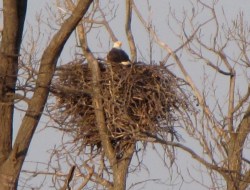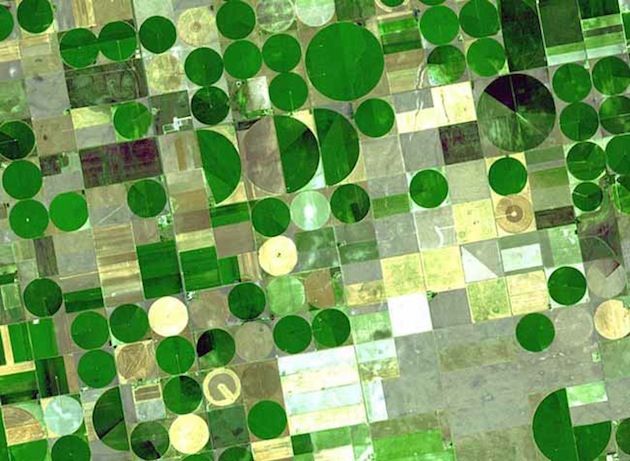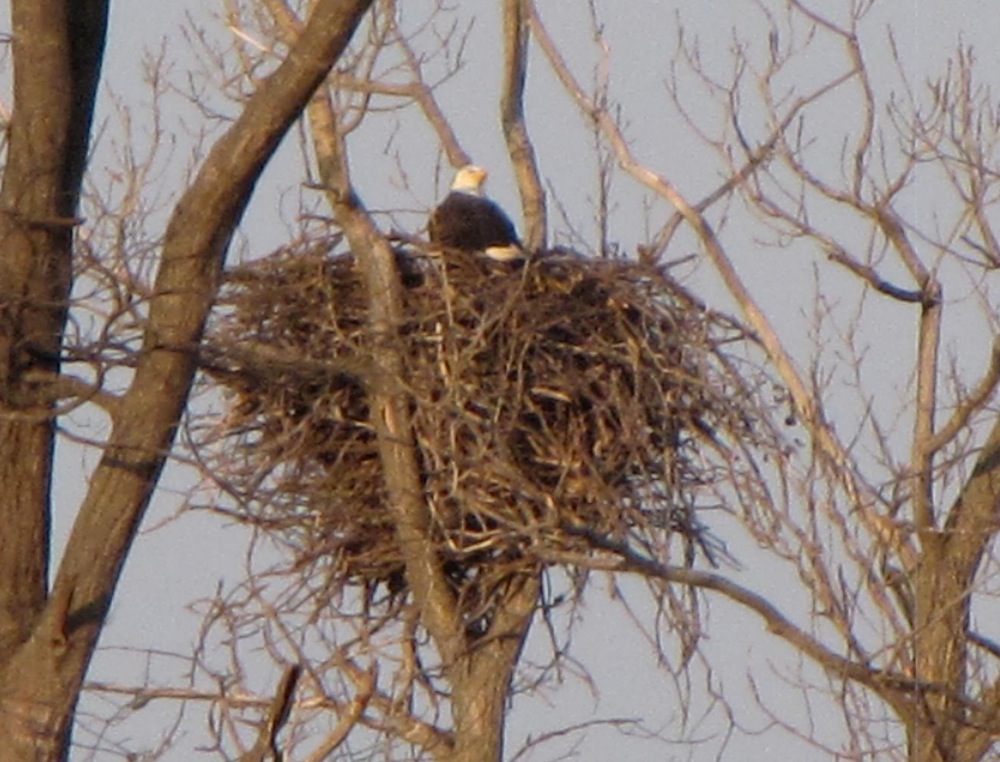
U.S. Fish & Wildlife Service – Midwest RegionA bald eagle nesting in Crab Orchard National Wildlife Refuge in Illinois.
You might think that national wildlife refuges would be places where wildlife could take refuge from the environmental insanity of modern American agriculture.
But you’d be wrong.
Birds, insects, and other wildlife are sharing refuges with genetically engineered crops and being exposed to poisonous pesticides.
A lawsuit [PDF] filed by environmental groups last week argues that the U.S. Fish & Wildlife Service’s Midwestern division is violating federal law by allowing the use of pesticides and the planting of GMOs at wildlife refuges in four states without conducting thorough site-by-site environmental reviews.
This is just the latest battle in a long-running war between environmentalists and the federal government over agricultural practices used at refuges across the country. From Environmental News Service:
This is the fifth lawsuit filed by Center for Food Safety and [Public Employees for Environmental Responsibility] challenging genetically engineered crops on wildlife refuges in their drive to ban these plantings from all refuges across the country.
A series of lawsuits has succeeded in rolling back approvals for genetically engineered crops on 75 national wildlife refuges across 30 states.
Previously, the two groups successfully challenged approval of genetically engineered plantings on two wildlife refuges in Delaware, which forced the Fish and Wildlife Service to end such plantings in its 12-state Northeastern region.
Another suit from the same groups halted cultivation of genetically engineered [crops] on 25 refuges across eight states in the Southeast in November 2012.
“These chemical companies and their products have no role in maintaining our wildlife refuges,” said Kathryn Douglass of PEER. “The Fish and Wildlife Service needs to look before it leaps to embrace industrial agricultural techniques on what are supposed to be havens for wildlife.”




